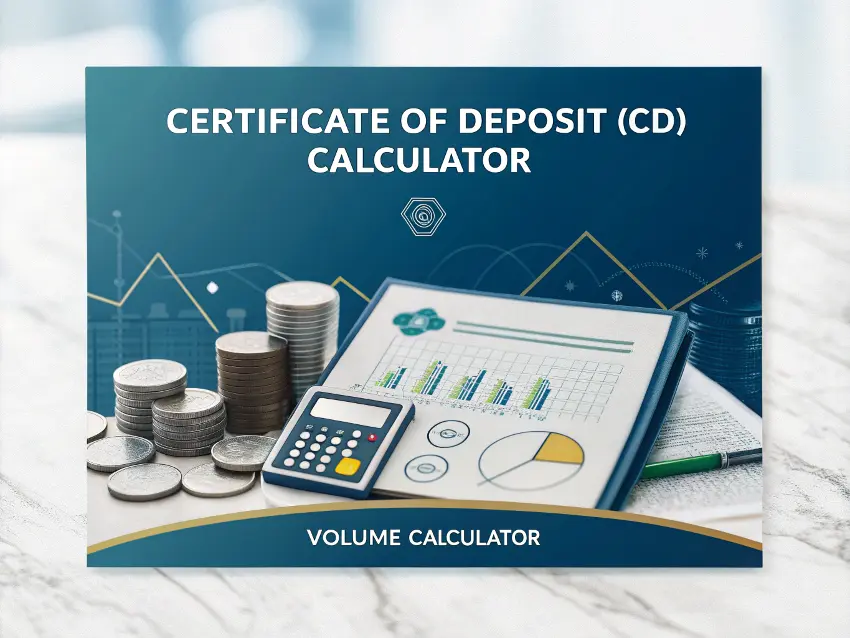CD Calculator
Calculate Certificate of Deposit returns, compare rates, and plan your low-risk investment strategy with our comprehensive CD calculator.

Certificate of Deposit (CD)
Compound Interest Formula:
A = P(1 + r/n)^(nt)
Where:
- A = Final amount
- P = Principal (initial deposit)
- r = Annual interest rate (decimal)
- n = Compounding frequency per year
- t = Time in years
Certificates of Deposit (CDs) are time deposit accounts offered by banks and credit unions that typically offer higher interest rates than regular savings accounts in exchange for leaving the money untouched for a specified period.
CDs are FDIC-insured up to $250,000 per depositor, per bank, making them a safe investment option for conservative investors looking for guaranteed returns.
Early withdrawal from a CD usually results in a penalty, which often amounts to several months' worth of interest.
$
%
Some CDs allow additional deposits during the term
CD Results
Final Balance at Maturity:
$0.00
Total Interest Earned:
$0.00
Total Deposits:
$0.00
Effective Annual Rate:
0.00%
Over a period of 1.0 years, your $10,000.00 initial deposit will grow to $0.00, earning $0.00 in interest.
CD Term Comparison
| Term | Typical APY Range* | Liquidity | Early Withdrawal Penalty |
|---|---|---|---|
| 3 Months | 0.50% - 2.00% | Low | 1 month interest |
| 6 Months | 0.75% - 2.25% | Low | 3 months interest |
| 1 Year | 1.00% - 2.75% | Medium | 3 months interest |
| 2 Years | 1.25% - 3.00% | Medium | 6 months interest |
| 5 Years | 1.50% - 3.50% | High | 12 months interest |
* APY ranges are approximate and can vary based on economic conditions and financial institutions.
CD Investment Tips
CD Laddering Strategy
Instead of putting all your money in one long-term CD, consider creating a CD ladder by dividing your investment across multiple CDs with different maturity dates. This provides periodic access to funds while still earning higher interest rates.
Consider Inflation
Be aware that if the inflation rate exceeds your CD's interest rate, your money will lose purchasing power over time. Consider this when deciding between short-term and long-term CDs.
Shop Around
Online banks and credit unions often offer higher CD rates than traditional brick-and-mortar banks. Compare rates across multiple institutions to find the best deals.
Understand Penalties
Early withdrawal penalties can significantly reduce your returns. Make sure you won't need the funds before the CD matures, or consider a no-penalty CD which allows withdrawals without penalties but typically offers lower interest rates.